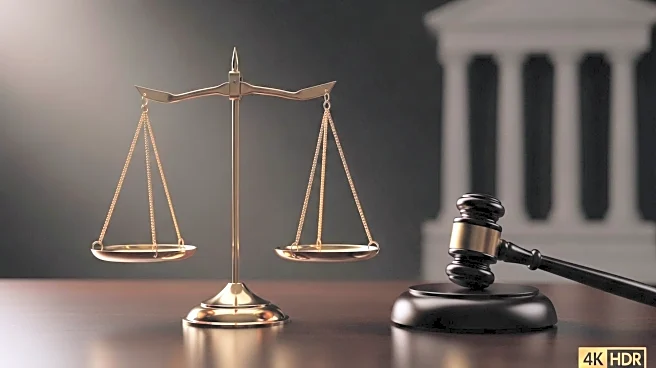What's Happening?
The federal judiciary has dismissed a lawsuit filed by Caryn Strickland, a former North Carolina federal public defender, who alleged harassment and retaliation by her supervisors. Strickland's case, which spanned five years and multiple presidential administrations, challenged the judiciary's internal complaint processes, arguing they lack due process and impartiality. The dismissal underscores the judiciary's exemption from Title VII of the Civil Rights Act, which protects against workplace discrimination. Strickland's case has highlighted the lack of legal protections for over 30,000 judicial branch employees, including law clerks and public defenders, who are not covered by federal anti-discrimination laws.
Why It's Important?
The dismissal of Strickland's lawsuit raises significant concerns about the accountability and transparency of the federal judiciary's workplace conduct. Without Title VII protections, judicial employees face challenges in addressing harassment and discrimination, potentially affecting their career prospects and workplace environment. This case has sparked broader discussions about the need for legislative reforms to extend anti-discrimination protections to judicial employees, ensuring they have access to fair and impartial complaint processes. The judiciary's resistance to such reforms may impact public confidence in its ability to self-regulate and uphold justice.
What's Next?
The dismissal may prompt renewed efforts by advocacy groups and lawmakers to push for legislative changes that extend workplace protections to judicial employees. Strickland's case could serve as a catalyst for broader judicial reforms, including the establishment of independent oversight mechanisms. The judiciary's response to these calls for reform will be closely watched, as it may influence future policy decisions and the overall perception of judicial accountability.
Beyond the Headlines
The case highlights ethical concerns about the judiciary's ability to self-police and the potential conflicts of interest inherent in its internal complaint processes. The lack of external oversight raises questions about the judiciary's commitment to upholding workplace rights and maintaining public trust. Long-term, this issue may drive cultural shifts within the judiciary, emphasizing the importance of transparency and accountability in its operations.









